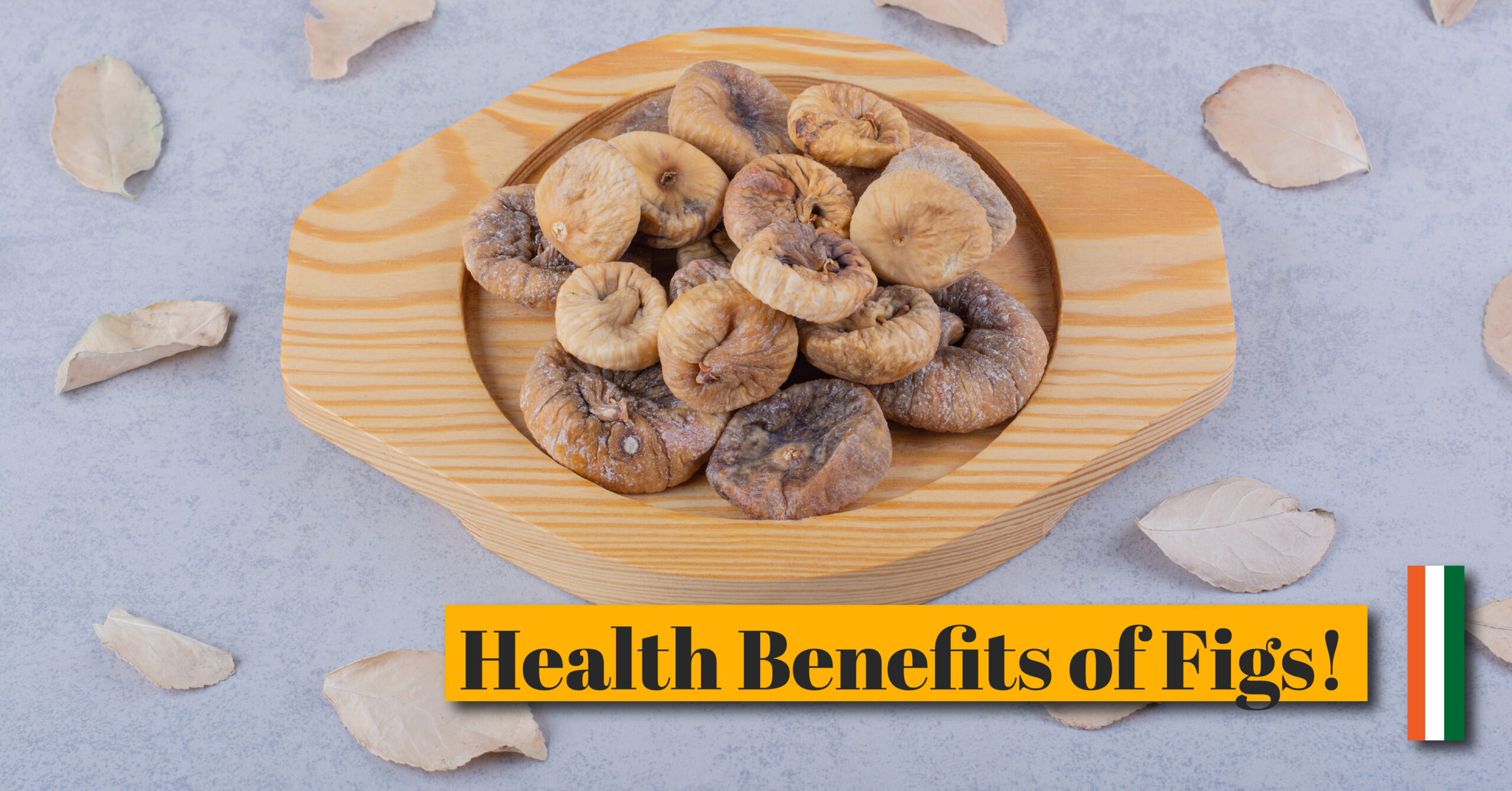Introduction:
Figs are a delectable fruit that have been prized for generations due to their numerous health advantages in addition to their captivating flavor. These delicious jewels have been valued for their nutritional value and therapeutic qualities since ancient literature and religious texts frequently mention them. We’ll explore the many health advantages of figs in this blog, explaining why including this adaptable fruit in your diet can improve your general health.

Nutritional Profile:
Let us examine the nutritional makeup of figs in more detail before moving on to discuss their unique advantages. Figs are a bountiful supply of vital nutrients, such as vitamins, minerals, and dietary fiber. Because dried figs include natural sugars including glucose, fructose, and sucrose, one serving supplies a significant quantity of energy. Crucial nutrients such as vitamin A, vitamin K, vitamin B6, niacin, riboflavin, folate, pantothenic acid, and a range of minerals like potassium, calcium, magnesium, phosphorus, and iron are also rich in figs.
Digestive Health:
The potential of figs to support digestive health is one of their most noteworthy advantages. Both soluble and insoluble dietary fiber, which supports the maintenance of a healthy digestive tract, can be found in plenty in figs. The soluble fiber in figs aids in the absorption of water and the formation of a gel-like material, promoting more easily digested food and avoiding constipation. Conversely, insoluble fiber gives the stool more volume, encouraging regular bowel movements and averting digestive problems. Consuming figs as part of your diet can be especially helpful for those who experience constipation or other digestive issues.

Heart Health:
Figs are an excellent approach to boost heart health because of their high potassium content. Potassium is a necessary mineral that helps regulate blood pressure and counteracts the effects of salt. Figs help maintain overall cardiovascular health by reducing the risk of hypertension and its related issues through balancing potassium and sodium. The dietary fiber in figs also aids in cholesterol regulation, further protecting the heart from disease. Including figs in your diet can be a tasty and useful way to support cardiovascular health.
Rich in Antioxidants:
Antioxidants, which are abundant in figs, are essential in defending the body against oxidative stress. Free radicals are unstable molecules that can harm cells, speed up aging, and cause a number of chronic diseases, including cancer. Antioxidants work to counteract these molecules. Because figs include substances like phenols, flavonoids, and polyphenols, they are a great complement to a diet high in antioxidants. Frequent fig eating may lessen inflammation, improve cellular health overall, and decrease the likelihood of developing chronic illnesses.

Blood Sugar Regulation:
Figs have a moderate glycemic index, which makes them a good fruit for people with diabetes despite their sweet flavor. Soluble fiber, found in figs, helps control blood sugar levels by slowing down the digestion and absorption of sugars. Those who want to control their blood sugar levels and lower their chance of developing insulin resistance may find this to be especially helpful. Even when they come from nutritious sources like figs, people with diabetes must watch how much carbohydrate they consume overall and get nutritional guidance from a healthcare provider.
Bone Health:
Calcium, phosphorus, and magnesium are just a few of the vital elements that can be found in figs and are all necessary for strong, healthy bones. Particularly important for maintaining bone density and preventing diseases like osteoporosis is calcium. If you’re not a dairy product person, adding figs to your diet can help you reach your recommended daily intake of calcium. These minerals work synergistically in figs to support bone health and lower the incidence of fractures and other bone-related problems.

Weight Management:
Figs can be a useful addition to the diet for people trying to control or reduce their weight. Figs’ high dietary fiber content makes you feel satisfied and full, which helps you avoid overindulging in food or between-meal snacking. In addition to being a healthier substitute for artificial sweets, figs’ natural sugars satisfy sweet cravings without having a detrimental effect on weight or general health. But moderation is essential because figs still contain calories, and consuming too many of them might make weight management objectives difficult.
Skin Health:
Figs are not only nourishing inside, but when applied topically, they also help to promote glowing skin. Because figs are rich in antioxidants, they fight oxidative stress, delaying the onset of premature aging and maintaining a youthful complexion. Moreover, the vitamin C in figs promotes the synthesis of collagen, improving the strength and suppleness of skin. Complementing the internal benefits of ingestion, exterior nourishing of the skin can be achieved by making a handmade fig mask or using fig extract in beauty procedures.

Incorporating Figs into Your Diet:
After learning about all of the advantages of figs, the following step is to come up with inventive methods to include them in your diet. Figs can be used to a variety of foods to improve their flavor and nutritional value. They can be eaten fresh or dried. Here are some tips to include figs into your meals in a delicious way:

- Fresh Snacking:Savor fresh figs by themselves as a filling and healthful snack.
- Dried Figs in Breakfast: Add finely chopped dried figs to your yogurt, oatmeal, or cereal in the morning for a tasty and nourishing breakfast.
- Salads with Figs:To add a pop of sweetness and texture to salads, add either fresh or dried figs.
- Fig Smoothies: Add some fresh or dried figs to your preferred smoothie to create a tasty, nutrient-rich drink.
- Baking with Figs:When preparing muffins, cakes, or energy bars, add figs for a healthy and satisfying treat.
- Fig Jam or Spread:Produce your own fig spread or jam to eat on toast, with crackers, or as a garnish for sweets.
- Fig and Cheese Pairing: Use dried or fresh figs to create a delicious cheese platter that has the ideal harmony of tastes.

Conclusion:
In conclusion, figs are a vital complement to a healthy and balanced diet because of their many health benefits that go well beyond just their delicious flavor. Figs provide a wide range of benefits, including managing blood sugar, improving skin health, supporting heart health, and assisting with digestion. Consider using figs in your regular meals as you set out on a path to wellness and enjoy the delightful benefits of this nutrient-dense superfood. Accept the richness of figs and allow their inherent goodness to make you feel better and more alive.


